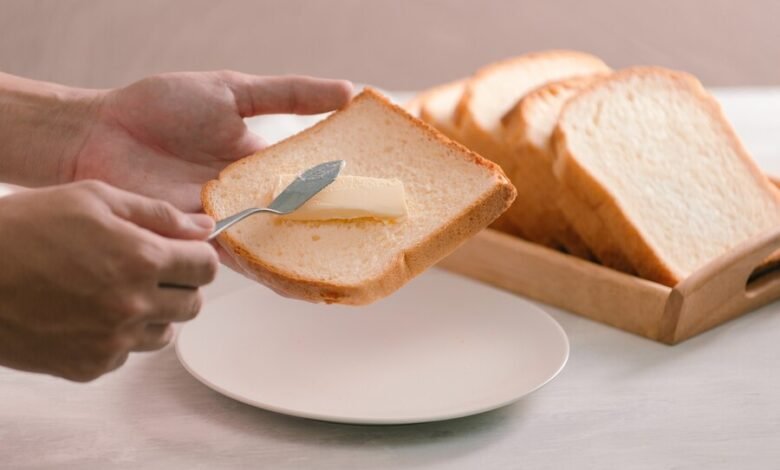Breaking Bread: The Cultural Significance of Toastul Around the World

Introduction to Toastul and its Origins
Welcome to the wonderful world of Toastul, where breaking bread transcends mere sustenance and becomes a symbol of unity, friendship, and cultural richness. Join us on a journey exploring the significance of toastul across different corners of the globe, delving into its origins, evolution in modern times, and why this age-old tradition continues to hold a special place in our hearts. Let’s raise our virtual glasses (or toasts) to celebrate the cultural tapestry that is woven through this simple yet profound act.
Toastul as a Symbol of Unity and Friendship
Toastul, a simple act of raising a glass and sharing good wishes, transcends cultural boundaries to become a universal symbol of unity and friendship. It is more than just clinking glasses; it is an expression of goodwill towards others.
In many cultures around the world, toasting is seen as a gesture of respect and camaraderie. It brings people together in celebration or solidarity, fostering connections and strengthening bonds.
Whether it’s at a wedding reception, business meeting, or casual dinner with friends, toastul has the power to break down barriers and create moments of shared joy. By participating in this tradition, individuals show their willingness to come together in harmony.
The act of making a toast often signifies gratitude for the presence of others and acknowledges the importance of community. In essence, toastul serves as a reminder that we are all interconnected in this vast tapestry called life.
The Role of Toastul in Celebrations and Rituals
Picture a festive gathering, where friends and family come together in joyous celebration. In many cultures around the world, Toastul plays a central role in these moments of connection and camaraderie. It is not just about raising a glass; it’s about sharing stories, expressing gratitude, and forging bonds that transcend time.
During special occasions like weddings or milestone achievements, Toastul serves as a symbolic gesture of honor and respect. The clinking of glasses echoes with well wishes for the future or fond memories of the past. It is a moment frozen in time where everyone unites in harmony to mark an important event.
In some traditions, Toastul is elevated to an art form, with elaborate rituals and specific etiquettes to follow. The act of toasting becomes more than just words spoken over drinks; it becomes a sacred ritual that imbues significance into the occasion.
Whether it’s a simple gathering among friends or an elaborate ceremony steeped in tradition, Toastul remains a timeless symbol of unity and connection across various cultures worldwide.
Regional Variations of Toastul
From the traditional French toast to the Japanese melonpan, regional variations of Toastul showcase a diverse range of flavors and customs. In France, pain perdu is a staple breakfast item made from day-old bread soaked in eggs and milk then fried until golden brown. The Spanish enjoy their version called torrijas during Easter, where slices of bread are soaked in sweetened milk or wine before being coated in sugar.
Moving eastward, India celebrates with its spicy masala toast while Australians savor Vegemite on toast as a classic snack. In South Korea, street vendors sell hotteok – a sweet pancake filled with cinnamon and nuts that warms both hands and hearts.
Each country adds its unique twist to the timeless tradition of toasting bread – a testament to the creativity and ingenuity found across different cultures worldwide.
The Evolution of Toastul in Modern Times
In today’s fast-paced world, the tradition of Toastul has evolved to adapt to modern lifestyles. What once may have been a simple gesture of breaking bread together has now transformed into a symbol of connectivity in the digital age. Social media platforms and virtual gatherings have allowed people from different corners of the globe to partake in a virtual toast, bridging geographical distances with a click.
The rise of food bloggers and influencers showcasing unique ways to create and share toast recipes has sparked creativity and innovation within the realm of Toastul. From avocado toast to artisanal toppings, individuals are experimenting with flavors and presentations, turning a basic snack into an art form.
Furthermore, businesses have capitalized on this trend by offering trendy toast options at cafes and restaurants, catering to those seeking Instagram-worthy moments alongside their culinary experiences. The evolution of Toastul reflects society’s continuous quest for connection through shared experiences – whether physical or digital – making it more than just a mealtime ritual but a cultural phenomenon shaping how we bond over food in contemporary times.
Challenges to the Tradition of Toastul
In the fast-paced modern world, the tradition of Toastul faces challenges in maintaining its authenticity and depth. As societies evolve, traditional rituals like Toastul can sometimes be overshadowed by technology and changing social norms. The rise of virtual communication and busy lifestyles may hinder the meaningful connections that Toastul aims to foster.
Moreover, globalization has led to a blending of cultures, potentially diluting the unique aspects of regional variations of Toastul. With people from diverse backgrounds coming together, there is a risk of losing the cultural specificity that makes Toastul so special.
Furthermore, societal pressures and time constraints can make it challenging for individuals to prioritize gatherings where they can participate in authentic toast-making traditions. Finding opportunities for genuine connections amidst hectic schedules requires intentional effort and commitment.
Despite these obstacles, preserving the essence of Toastul is vital in fostering bonds among individuals and communities worldwide. By recognizing these challenges and adapting to meet them creatively, we can ensure that this cherished tradition continues to thrive in our modern society.
Conclusion: Why Toastul Continues to Hold Significance in Today’s Society
Toastul, with its rich history and cultural significance, continues to play a vital role in societies around the world. It serves as a symbol of unity, friendship, and celebration, bringing people together in moments of joy and camaraderie. Despite the challenges it may face in modern times, Toastul remains a cherished tradition that bridges gaps between individuals from diverse backgrounds.
As we toast to good health, happiness, and prosperity in our lives, let us remember the power of coming together over a shared meal or drink. In an ever-changing world filled with uncertainties, Toastul stands as a timeless reminder of our common humanity and the importance of connection. So raise your glass or slice of bread high – here’s to the enduring legacy of Toastul in today’s society!



